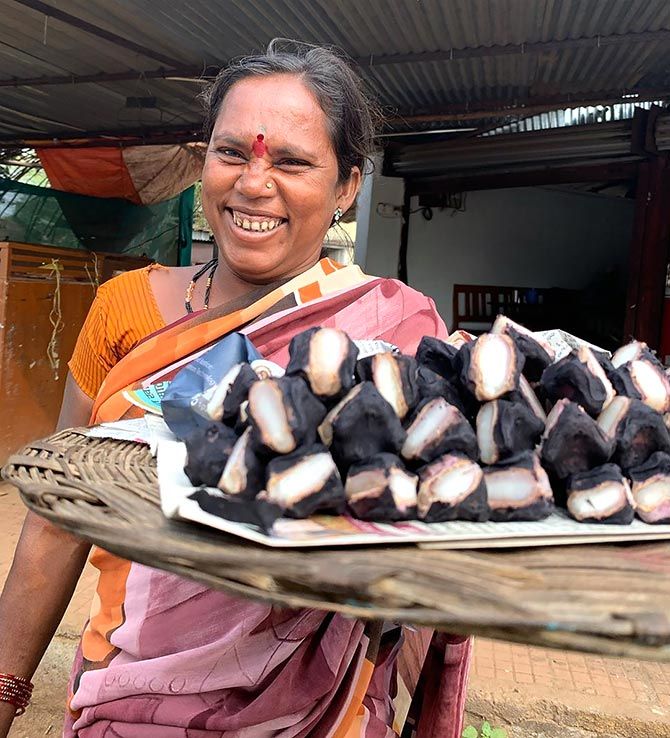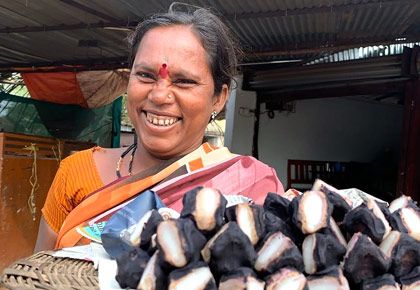It's a dessert, a mid meal and a main meal, insists nutritionist Rujuta Diwekar.

Nutritionist and author Rujuta Diwekar (not in the picture) often uses Instagram to share important health tips and lessons.
The 46-year-old advises people to include locally available ingredients in one's daily diet.
Recently, Rujuta shared a picture of a local woman selling singhada (water chestnuts) along with a long message explaining its immense health benefits.
Here's what she wrote:
'The toast of the winters, this aquatic vegetable is one of the many delicacies that i ate on my recent trip to #gadchiroli.'
'It also grows naturally in ponds and lakes in many parts of Central India.
'This nutrient loaded food then is not just good for the people but also for the planet.
'The singhada is a winner and that could well be the reason for the seller’s smile too.
Why to eat?
'The water chestnut is a rich dose of antioxidants, minerals and vitamins.
'Traditionally it is known to improve fertility levels (curtails growth of tumours and promotes hormonal balance), lower BP and relief from acidity.
'It’s one of the veggies that is recommended during fasts. And I am always touched by how all rituals of our culture, fasts included, promoted diversity in our diet.
How to eat?
'You can eat it raw, just peel it open. You could roast it and then peel and eat. You could dry it, make it into an atta and then make rotis out of it which are popular during fasts.
'It’s a dessert, a mid meal and a main meal.'
'Every reason to eat it. Have you had one yet?'











